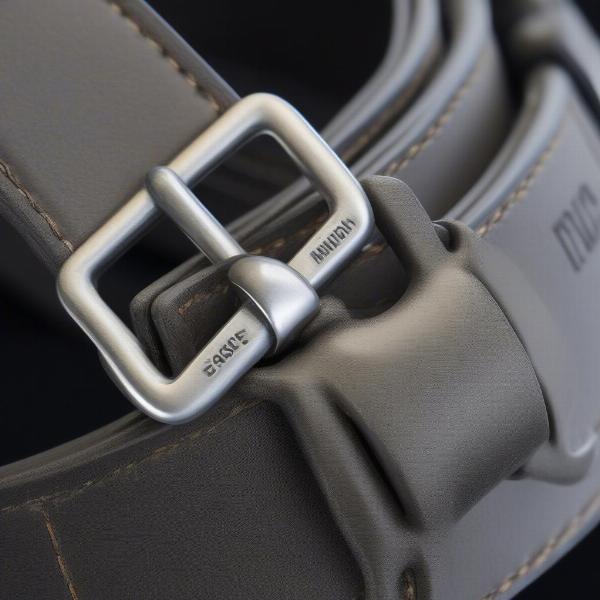Choosing the right collar for your small dog can be a daunting task, given the sheer variety available. This guide explores the essential factors to consider when selecting a collar for your small breed companion, covering everything from material and fit to safety and style. We’ll help you find the perfect collar to keep your furry friend safe, comfortable, and looking their best.
Understanding Your Small Dog’s Needs
Before diving into the different types of collars, it’s crucial to consider your small dog’s specific needs. Factors like breed, age, activity level, and any existing health conditions can influence your collar choice. For instance, a brachycephalic breed like a Pug might benefit from a harness instead of a collar to avoid pressure on their airways, while a highly active Terrier might require a more robust and secure collar for adventurous walks.
Types of Collars for Small Dogs
There’s a vast array of collars designed specifically for small dogs, each with its own pros and cons. Here’s a breakdown of the most common types:
Standard Collars
These are the most basic type of collar, typically made from nylon, leather, or fabric. They are often adjustable and come with a buckle or quick-release clasp. Standard collars are suitable for everyday use and are a great option for attaching identification tags and leashing your dog.
Martingale Collars
Martingale collars, also known as limited-slip collars, are designed to tighten gently when a dog pulls, preventing them from slipping out. These are a good choice for small dogs who are prone to escaping their collars, especially sighthounds or breeds with narrow heads.
Harnesses
While not technically a collar, harnesses are a popular alternative for small dogs, distributing pressure across the chest and shoulders rather than the neck. This can be particularly beneficial for dogs with respiratory issues or delicate tracheas.
Choosing the Right Material and Fit
The material of your dog’s collar is important for both comfort and durability. Leather collars are stylish and long-lasting, but require more care than nylon. Nylon collars are lightweight, easy to clean, and come in a wide range of colors and patterns. When it comes to fit, ensure the collar is snug but not too tight – you should be able to fit two fingers comfortably between the collar and your dog’s neck.
Sizing Your Small Dog’s Collar
Accurately measuring your dog’s neck is essential for a proper fit. Use a flexible tape measure and measure around the base of their neck, adding two inches to ensure comfort. Check the manufacturer’s sizing guide for specific measurements.
Safety Considerations
Safety should always be paramount when choosing a collar for your small dog. Avoid collars with small parts that could be a choking hazard. Ensure the collar has a secure buckle or clasp and check it regularly for wear and tear.
 Safe collars for small dogs
Safe collars for small dogs
Conclusion
Selecting the right collar for your small dog involves careful consideration of their individual needs, the type of collar, the material, and safety features. By following these guidelines, you can ensure your furry friend is both safe and comfortable, allowing them to enjoy their walks and adventures to the fullest. Remember to always prioritize safety and comfort when making your decision.
FAQ
- What type of collar is best for a small dog that pulls? A martingale collar or a harness can be helpful for small dogs that pull on the leash.
- How often should I check my dog’s collar? Check your dog’s collar regularly for signs of wear and tear, and replace it as needed.
- Can I use a collar on a small dog with breathing problems? A harness is generally recommended for small dogs with breathing problems, as it distributes pressure more evenly.
- What is the best material for a small dog collar? Nylon and leather are both popular choices, each with its own advantages and disadvantages.
- How do I measure my small dog for a collar? Use a flexible tape measure and measure around the base of their neck, adding two inches.
- Are breakaway collars safe for small dogs? Breakaway collars can be a good option for preventing choking hazards, especially for dogs who get their collars caught on things.
- Where can I buy collars for small dogs? Collars for small dogs are available at pet stores, online retailers, and some veterinary clinics.
fancy dog collars for small dogs
training collars for small dogs
dog collars for small dogs
collar small dog
About ILM Dog: ILM Dog is your trusted resource for expert advice on all aspects of dog care and wellbeing, from breed selection and puppy care to senior dog health and training tips. We are dedicated to providing dog owners with the information they need to provide the best possible care for their canine companions. For further assistance with your dog care needs, contact us at [email protected] or call us at +44 20-3965-8624.